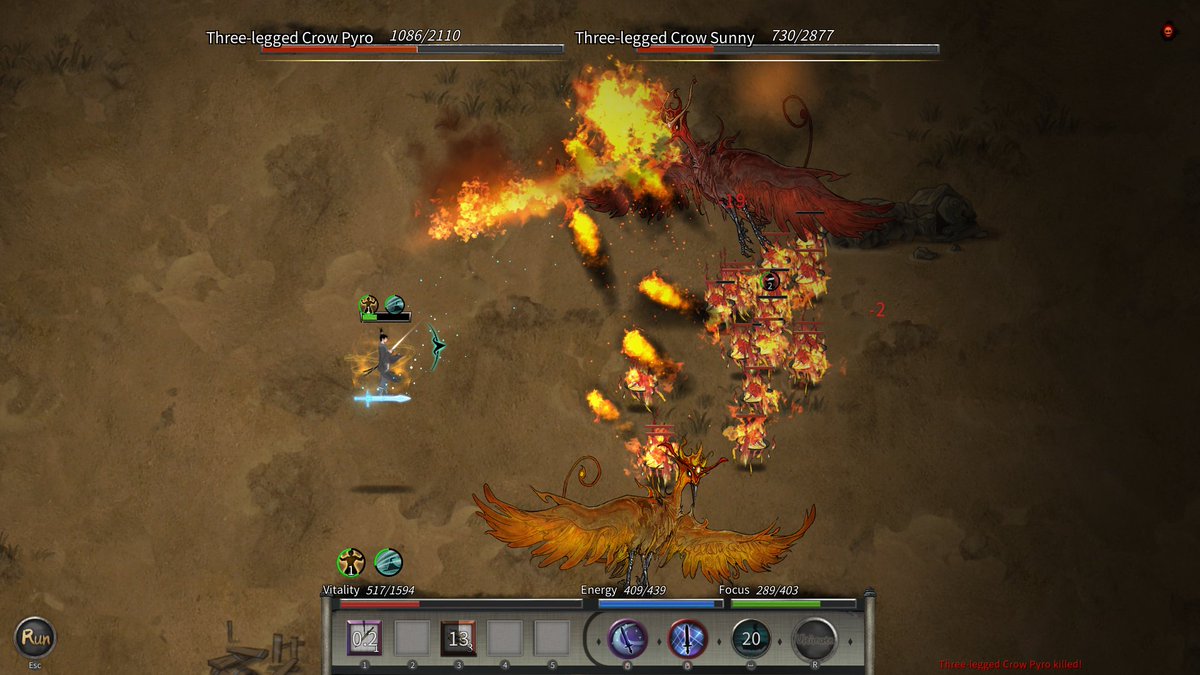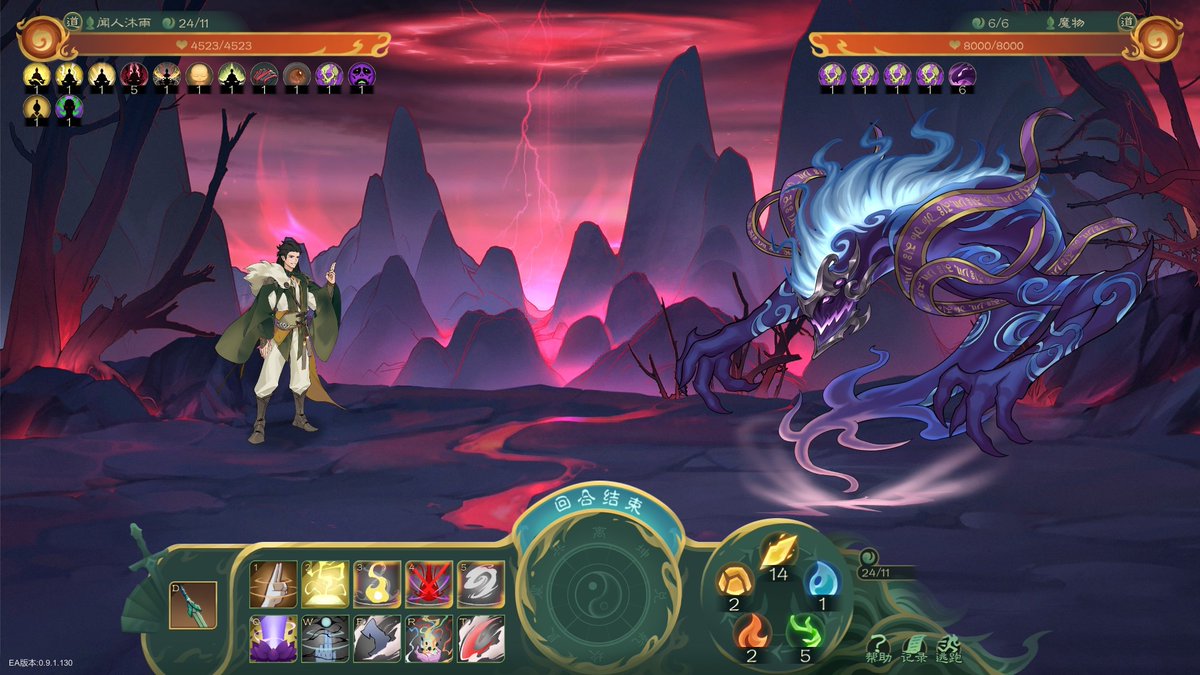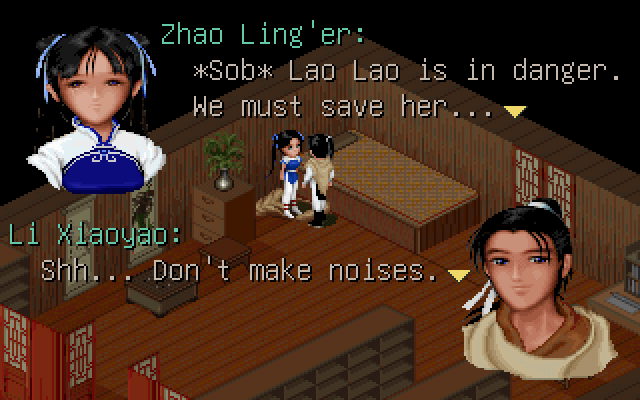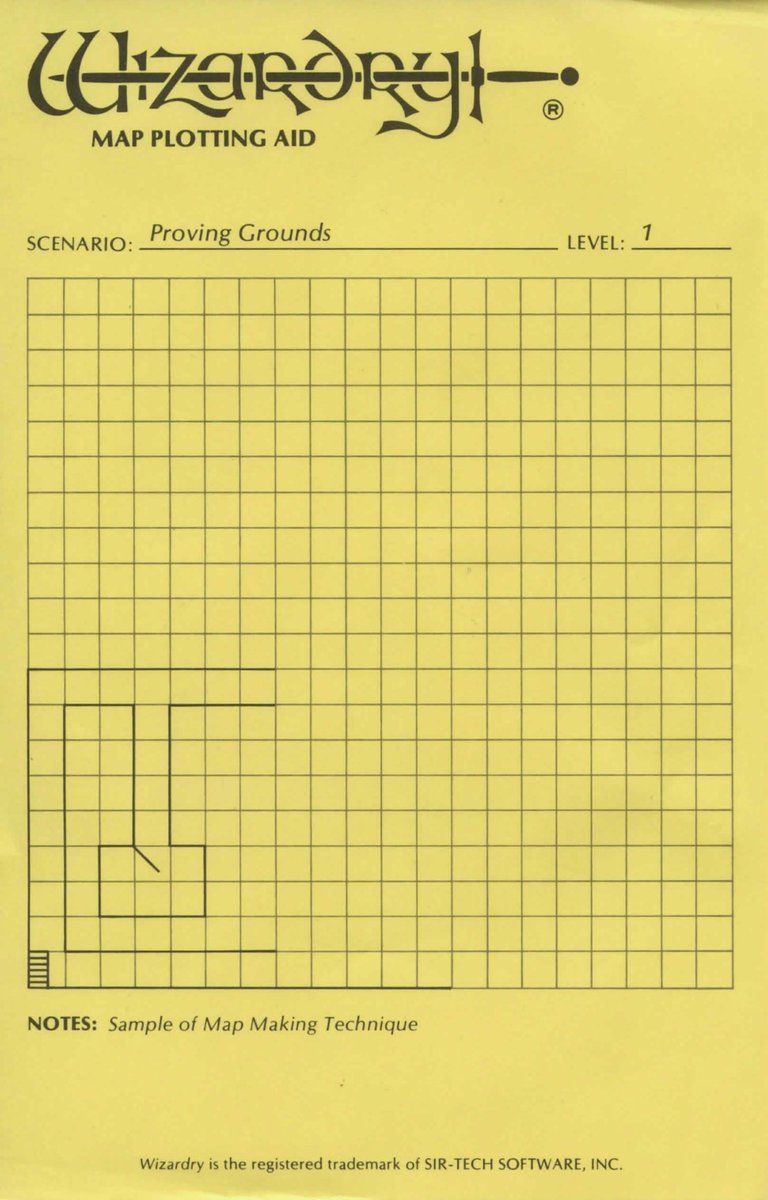Wuxia RPGs on the Steam Summer Sale, a thread!🧵
Wuxia RPGs have been going through a revival this past few years - some are real masterpieces, others are a bit janky or confusing but still very interesting.
Here's my favorite ones - all available in English (officially or not)




Wuxia RPGs have been going through a revival this past few years - some are real masterpieces, others are a bit janky or confusing but still very interesting.
Here's my favorite ones - all available in English (officially or not)




There's various Wuxia-inspired RPGs but IMO the most iconic are the open-world ones - create a character and go out learn martial arts, make choices & forge your own path!
Hero's Adventure is precisely that - easily one of the best RPGs of the past years: store.steampowered.com/app/1948980/He…




Hero's Adventure is precisely that - easily one of the best RPGs of the past years: store.steampowered.com/app/1948980/He…




Hero's Adventure is inspired by Heluo Studio's games... which are also on Steam! I can't recommend Tale of Wuxia enough, it's a fantastic series!
Start with the more JRPG-like "Pre-Sequel", then play the original, where you train martial arts at a sect: store.steampowered.com/app/650760/Tal…




Start with the more JRPG-like "Pre-Sequel", then play the original, where you train martial arts at a sect: store.steampowered.com/app/650760/Tal…




A recent development are RPGs that take this "Helou Studio formula" and mix it with Mount & Blade-like mechanics.
Become immortal, compete with other immortals, marry, start a sect, etc - Tale of Immortal does all this with a unique Action-RPG combat: store.steampowered.com/app/1468810/_T…




Become immortal, compete with other immortals, marry, start a sect, etc - Tale of Immortal does all this with a unique Action-RPG combat: store.steampowered.com/app/1468810/_T…




Sands of Salzaar also goes for this sub-genre - it's basically "Mount & Blade but in a Wuxia setting":
Meaning there's a bigger focus on recruiting armies, large-scale battles, capturing cities & factions, etc. There's a story mode and some sandbox ones. store.steampowered.com/app/1094520/Sa…




Meaning there's a bigger focus on recruiting armies, large-scale battles, capturing cities & factions, etc. There's a story mode and some sandbox ones. store.steampowered.com/app/1094520/Sa…




The Matchless Kungfu goes for similar ideas with a very different approach:
It's "Wuxia Kenshi", with a weird combat system. If you like Kenshi, it's a no-brainer.
If not, it's very niche and it's still in Early Access, so it's a risky recommendation... store.steampowered.com/app/1696440/Th…




It's "Wuxia Kenshi", with a weird combat system. If you like Kenshi, it's a no-brainer.
If not, it's very niche and it's still in Early Access, so it's a risky recommendation... store.steampowered.com/app/1696440/Th…




These are the Wuxia RPGs I feel are the most unique, that play nothing like Japanese or Western RPGs.
However, there's some great JRPG-like games to recommend - such as Wandering Sword:
It's a fun Wuxia RPG, just more linear & "Octopath Traveler-like". store.steampowered.com/app/1876890/Wa…




However, there's some great JRPG-like games to recommend - such as Wandering Sword:
It's a fun Wuxia RPG, just more linear & "Octopath Traveler-like". store.steampowered.com/app/1876890/Wa…




If you like more story-heavy JRPGs, that focus on the party members and romances, do try Sword and Fairy 7:
This game is basically "what if Xenoblade Chronicles was a Chinese Drama?" - from that you should know if it's for you or not. store.steampowered.com/app/1543030/Sw…




This game is basically "what if Xenoblade Chronicles was a Chinese Drama?" - from that you should know if it's for you or not. store.steampowered.com/app/1543030/Sw…




GuJian 3 is also a niche recommendation:
It's a 50h RPG with Witcher 3-like combat, but it's EXTREMELY introspective & slow-paced. There's no romance and little humor, is all about the journey of an immortal to accept his fate.
Great, but not for everyone store.steampowered.com/app/994280/Guj…




It's a 50h RPG with Witcher 3-like combat, but it's EXTREMELY introspective & slow-paced. There's no romance and little humor, is all about the journey of an immortal to accept his fate.
Great, but not for everyone store.steampowered.com/app/994280/Guj…




Quick RPG-related recs:
If you like action-roguelikes like Hades:
-Devil Slayer Raksasi:
-Warm Snow:
If you like deck-building roguelikes:
-Yi Xian:
If you like Dwarf Fortress:
-ACS: store.steampowered.com/app/1016600/De…
store.steampowered.com/app/1296830/_W…
store.steampowered.com/app/1948800/Yi…
store.steampowered.com/app/955900/Ama…
If you like action-roguelikes like Hades:
-Devil Slayer Raksasi:
-Warm Snow:
If you like deck-building roguelikes:
-Yi Xian:
If you like Dwarf Fortress:
-ACS: store.steampowered.com/app/1016600/De…
store.steampowered.com/app/1296830/_W…
store.steampowered.com/app/1948800/Yi…
store.steampowered.com/app/955900/Ama…
These are all officially in English. If you're ok with fan-translations, I also recommend these - but play the others first
-Ho Tu Lo Shu:
-Immortal Way of Life:
-Path of Wuxia (really good & easy to learn): store.steampowered.com/app/952860/_Ho…
store.steampowered.com/app/1189490/_/
store.steampowered.com/app/1189630/Pa…



-Ho Tu Lo Shu:
-Immortal Way of Life:
-Path of Wuxia (really good & easy to learn): store.steampowered.com/app/952860/_Ho…
store.steampowered.com/app/1189490/_/
store.steampowered.com/app/1189630/Pa…



Final recommendation: play Chinese Paladin - the original one from 1995
For a huge part of the planet, this is one of the most influential RPGs ever made. It's a wonderful story full of charm, and it has an English fan-translation: store.steampowered.com/app/1546570/Sw…
romhacking.net/translations/2…




For a huge part of the planet, this is one of the most influential RPGs ever made. It's a wonderful story full of charm, and it has an English fan-translation: store.steampowered.com/app/1546570/Sw…
romhacking.net/translations/2…




• • •
Missing some Tweet in this thread? You can try to
force a refresh




































